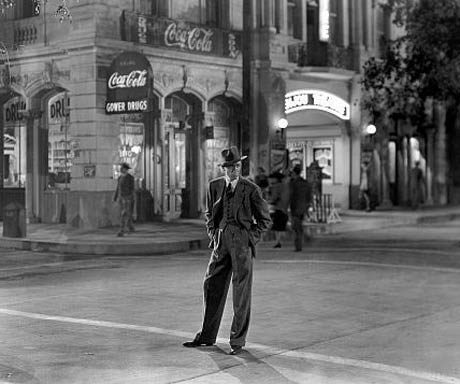Lovingly restored in both colour and black and white editions, Frank Capras omnipresent holiday classic gets the full treatment 60 years after hitting theatres and quietly disappearing. By now the story of Jimmy Stewarts George Bailey is well-known: its a Dickensian Christmas tale about a man reduced to suicide after a status quo lifestyle as a conscientious banker and family man leaves him unfulfilled, and, thanks to a conniving, Scrooge-like tycoon named Mr. Potter (Lionel Barrymore), in seemingly insurmountable financial straits. Thankfully, a would-be angel named Clarence (Henry Travers) shows Bailey what the world would be like without him, prompting George to appreciate his life and experience a Christmas miracle in some of the most memorable scenes in cinema. The original film looks sharp, with restoration bringing out the detail in black and white. Surprisingly, the new colourised version is actually a real treat for fans and the usual hue of technology has been well concealed. Two excellent old features one hosted by Tom Bosley (Happy Days) and another by Frank Capra, Jr. are revealing. The film was originally a short story called The Greatest Gift (Scratch Acid fans take note), written by Phillip Van Doren Stern, who sent it out as a Christmas card in 1943. The tale was bought by RKO radio studios, who intended to make a film version starring Cary Grant. When three scripts failed and Grant did another project, Capra bought the story and set out to write a new screenplay with Frances Goodrich and Albert Hackett. Capra, who was beloved by audiences while critics dubbed his films "Capra corn cites Its a Wonderful Life as his favourite of his own films. Interestingly, this was Stewarts first film after returning from the Army and it took time to regain his confidence. The rest of the cast consisted of fine character actors like Barrymore and the virtually unknown Donna Reed, though Capras initial hopes for W.C. Fields as "Uncle Billy or Vincent Price as "Mr. Potter wouldve been intriguing. The film was nominated for several Academy Awards but didnt win any and was retired into obscurity, as many found the film too depressing for Christmas. In the 70s, the films copyright expired and, when it became public domain, television stations played the film whenever they wanted without paying royalties. Its funny how such odd circumstances caused Its a Wonderful Life to become a television staple at Christmas, rescued from oblivion much like George Bailey was. Plus: trailers.
(Paramount Pictures)It's a Wonderful Life: Two-Disc Collector's Set
Frank Capra

BY Vish KhannaPublished Jan 14, 2008